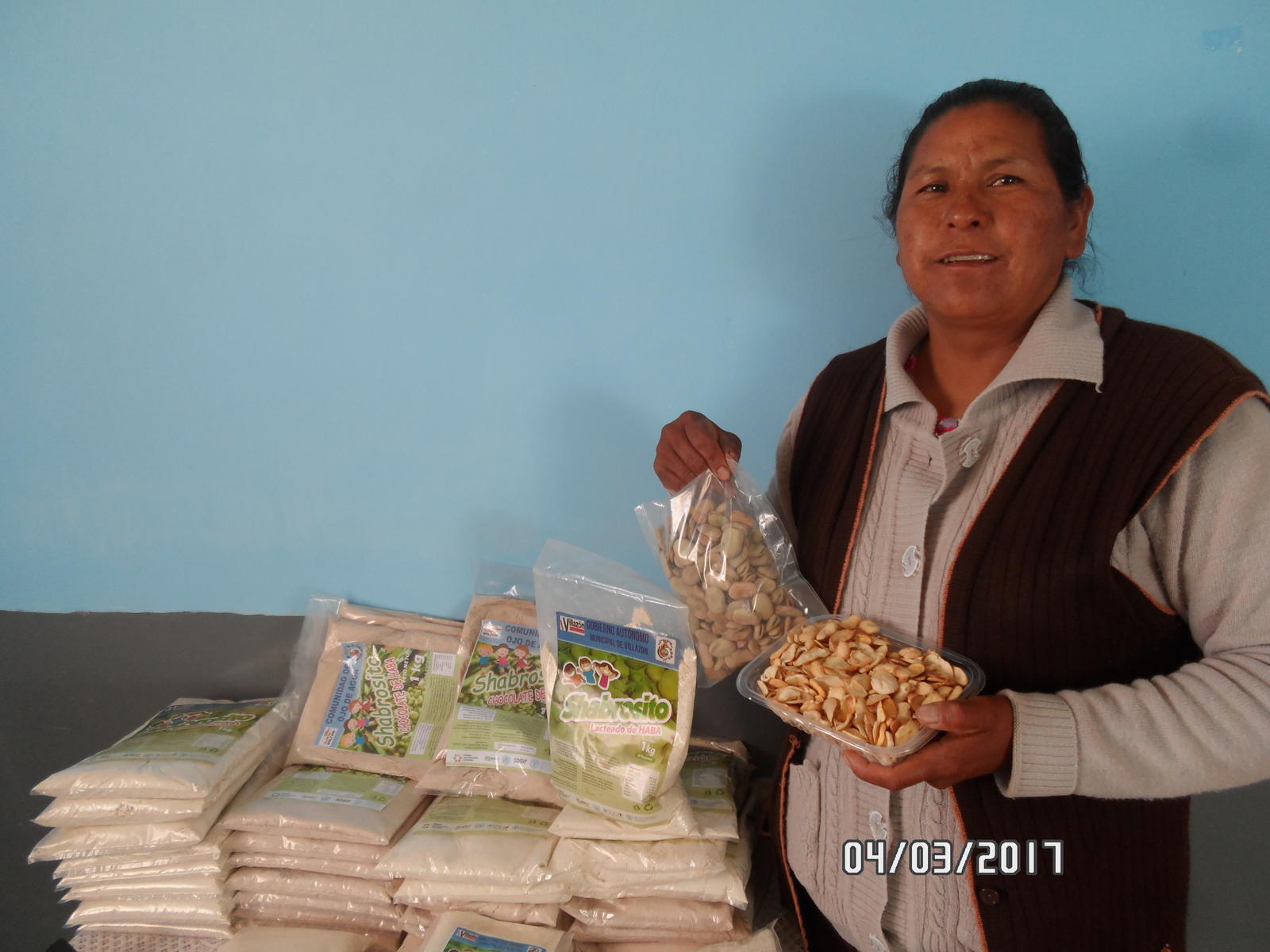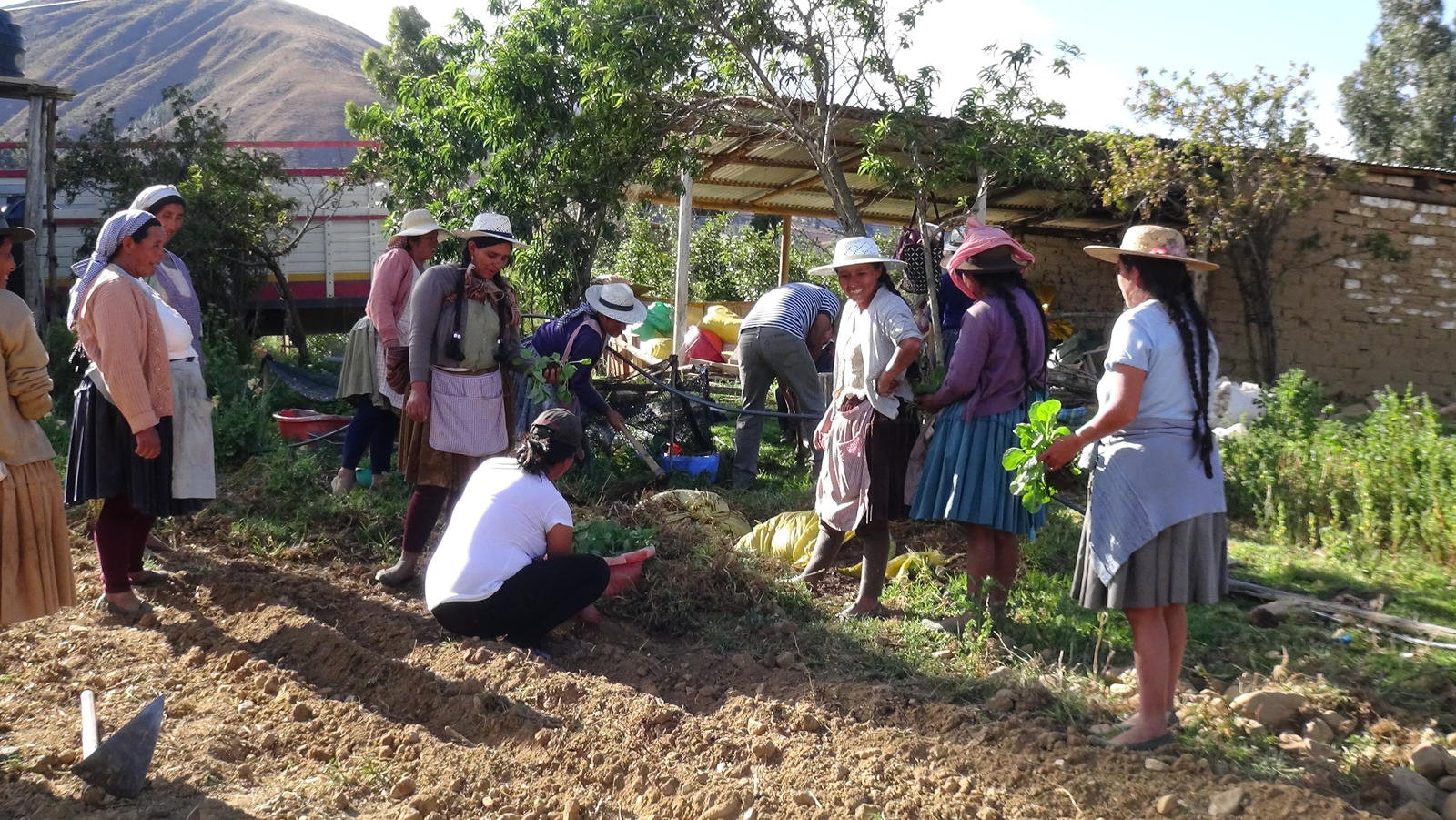September 6, 2018
"Ojo de Agua": Nutritious breakfasts for the schools in Villazon
Food security and nutrition in rural regions of Bolivia are based on small variety of products, such as rice, noodles, beans, corn, onion, lettuce and potatoes. Without the necessary contributions of vegetables, pulses, fruits, milk or eggs, this reduced diet does not adequately cover the nutritional needs of the population, especially children. 15 women entrepreneurs in the rural municipality of Villazón, Potosí, have organized and are joining forces against this challenge.
"Ojo de Agua" (Eye of Water) is an cooperative form by these women entrepreneurs, formed in 2016 within the framework of the joint program of the UN SDG Fund, to improve child nutrition from the strengthening of local food systems. The approach of this program is to revalue native crops of high nutritional value to incorporate them into the family diet. The 15 women entrepreneurs of Ojo de Agua received adequate training and the appropriate equipment by the programme in order to start producing bean milk and chocolate bean milk, two traditional bolivian recipes of high nutritional value that are being distributed in schools along the municipality to help improve the feeding of boys and girls.

Thanks to the programme, we have planted more than two hectares of beans and now we are generating income, something that we couldn't have before
Dina Docampo
Local producer and member of Ojo de Agua
The activity also generated a decisive impulse to the empowerment and the economic independence of the women of the region. In the case of the entrepreneurs of Ojo de Agua, it involves an approximate income of 11,800 bolivianos per month (around 1,700 dollars). In addition to this, last Christmas they commercialized up to 400 kilos of bean milk that for the local Christmas baskets.
Local producer Dina Docampo explains that even when programme finishes its mandate, the cooperative Ojos de Agua will continue producing and processing beans. "It's worth continuing," says Docampo, "we now can generate income, something that we couldn't do before. We have planted more than two hectares thanks to the project".
The SDG Fund program in Bolivia, thanks to local cooperatives such as Ojos de Agua and other iniciatives such us family gardens, has allowed the students of the educational centers in Villazón and Tupiza, the two rural municipalities of Potosí where it operates, to receive daily food nutritious and diversified. The municipalities are buying monthly family agriculture products for an amount of approximately 38.8000 Bolivarians, directly benefiting 65 families and 5,000 students.
Miguel Vargas, agricultural technician of the SDG Fund program in the department of Pocona (Cochabamba), explained that the project "aims to improve local food production through the use of organic fertilizers that reuse low-cost inputs available to the population. in communities such as: coal, cow waste, chancaca (sugarcane molasses) and bran (rice husk), among others. "

The National Health and Nutrition Assessment Survey of 2012 showed that chronic malnutrition in children under five years of age continues to be one of the unresolved health problems in Bolivia. In addition, the survey revealed that malnutrition affects rural municipalities, indigenous populations, families with fewer resources and children of mothers without formal education with greater virulence. Although the national average of chronic malnutrition is 18.1%, for rural areas in departments such as Potosí and Cochabamba this index increases to 25.6%.
Malnutrition is caused by a variety of factors derived from living in poverty. Habits of diet, childcare, education, access to health, and water and sanitation require integrated responses. The Government is developing various strategies to change this situation and the SDG Fund adds efforts through its program for the strengthening of local productive systems, in conjunction with United Nations agencies, organizations and local entrepreneurs.
The programme
Between December 2014 and July 2017, the SDG Fund supported four rural municipalities to provide integrated approaches to food security. It was aimed primarily at children between two and five, as well as pregnant women and nursing mothers, in order to ensure adequate nutrition while boosting the livelihood opportunities of local fruit and vegetable producers. It is expected that these pilot programs will expand and escalate to national policies.
The main pillars of the program were: 1) production systems based on fruits and vegetables, which integrate crops of high nutritional value; 2) Nutritional food education, which integrates and adds value to local food production and cultural traditions of nutrition; and 3) the strengthening of multisectoral coordination.






